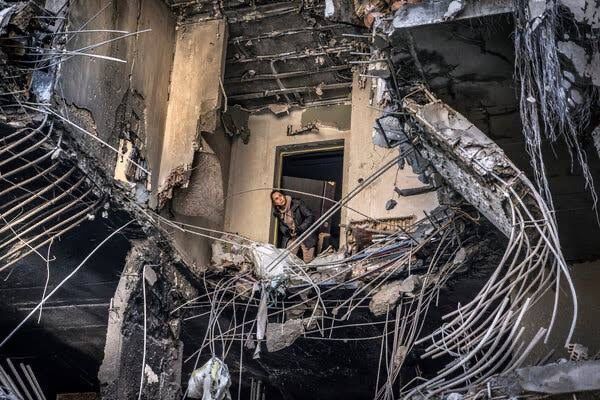Ukraine's War Shadows: A Journey Through Pain, Paradox and Potential for Peace

In the shadowy throes of Ukraine's war, a paradoxical reality unfolds. A conflict that, on the surface, appears to be about territorial sovereignty and political power reveals deeper, existential questions about human nature, suffering, and our collective ability to learn from history.
Ukraine’s war has manifested as a horrifying testament to the dissonance between the political will of the few and the lived experiences of the many. The conflict's aftermath, marked by frozen bank accounts and traumatized families, starkly exposes the human cost of such clashes. More so, it illustrates a devastating paradox - a war that satisfies neither party, yet continues to ravage the lives of innocent people.
This paradox, while distressing, is not unique to Ukraine. It is a recurring theme in conflicts worldwide, a stark reminder of our collective failure to adequately prioritize diplomacy, communication, and understanding over the destructive demands of power politics. Yet, within this somber reality, there is also a call to introspection, a call to explore the deeper philosophical underpinnings of these conflicts.
History, time and again, has revealed that war is more than a clash of powers. It is a complex interplay of human fears, aspirations, ideologies, and misunderstandings. It often begins with unaddressed grievances, unheeded warnings, and unfulfilled promises. It escalates in the absence of dialogue, empathy, and willingness to compromise. Finally, it perpetuates the cycle of pain and suffering when lessons remain unlearned and the scars of the past, unhealed.
Yet, every conflict also carries with it lessons of profound importance. Ukraine's war underlines the vital need for active diplomacy, open communication, and a genuine commitment to peace. It brings to light the human capacity for resilience, the ability to adapt and endure amidst unfathomable hardships. It underscores the critical role of international solidarity and the shared responsibility to prevent, mitigate, and resolve conflicts.
The sufferings endured in Ukraine are more than a testament to a particular geopolitical struggle; they are a reflection of our shared human journey. A journey that, despite its countless hardships and trials, also carries the potential for shared learning, growth, and ultimately, peace.
As we navigate the complexities of this paradoxical reality, we must carry with us the poignant reminders from Ukraine's ongoing struggle - the human cost of unresolved conflicts, the perils of inaction, and the pressing need for a renewed commitment to peace.
War is undoubtedly a tragedy. It is a brutal mirror reflecting our shared failures and the devastating consequences of our collective inaction. Yet, it also serves as a sobering reminder of our potential - our capacity for empathy, our ability for dialogue, and our collective power to learn, grow, and change.
In this lies our greatest hope. The promise that despite the shadows cast by war, we hold within us the potential for light. The potential to rise from the ashes of conflict, armed with newfound wisdom, unyielding resilience, and an unwavering commitment to a more peaceful, compassionate world.



Comments ()